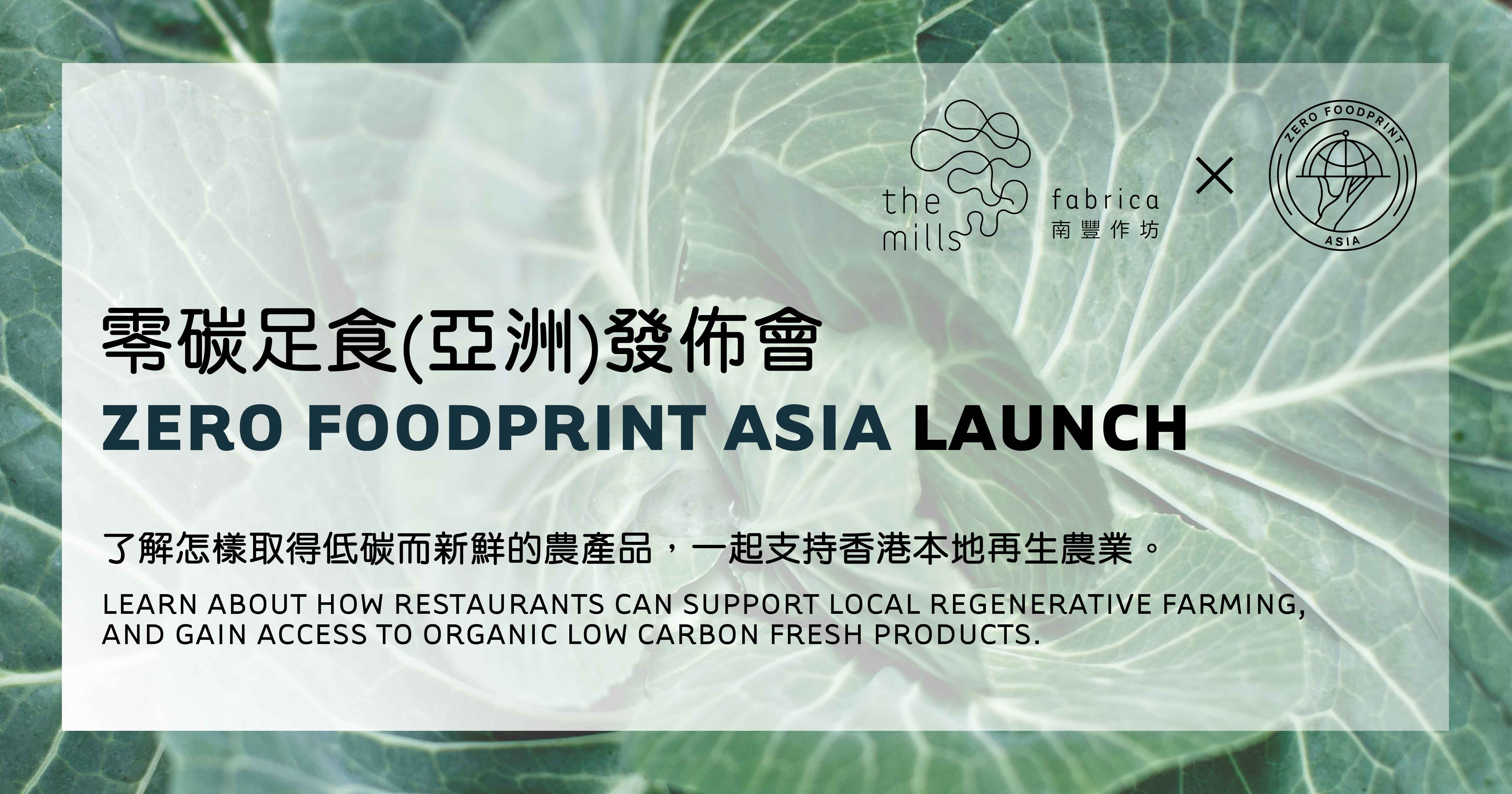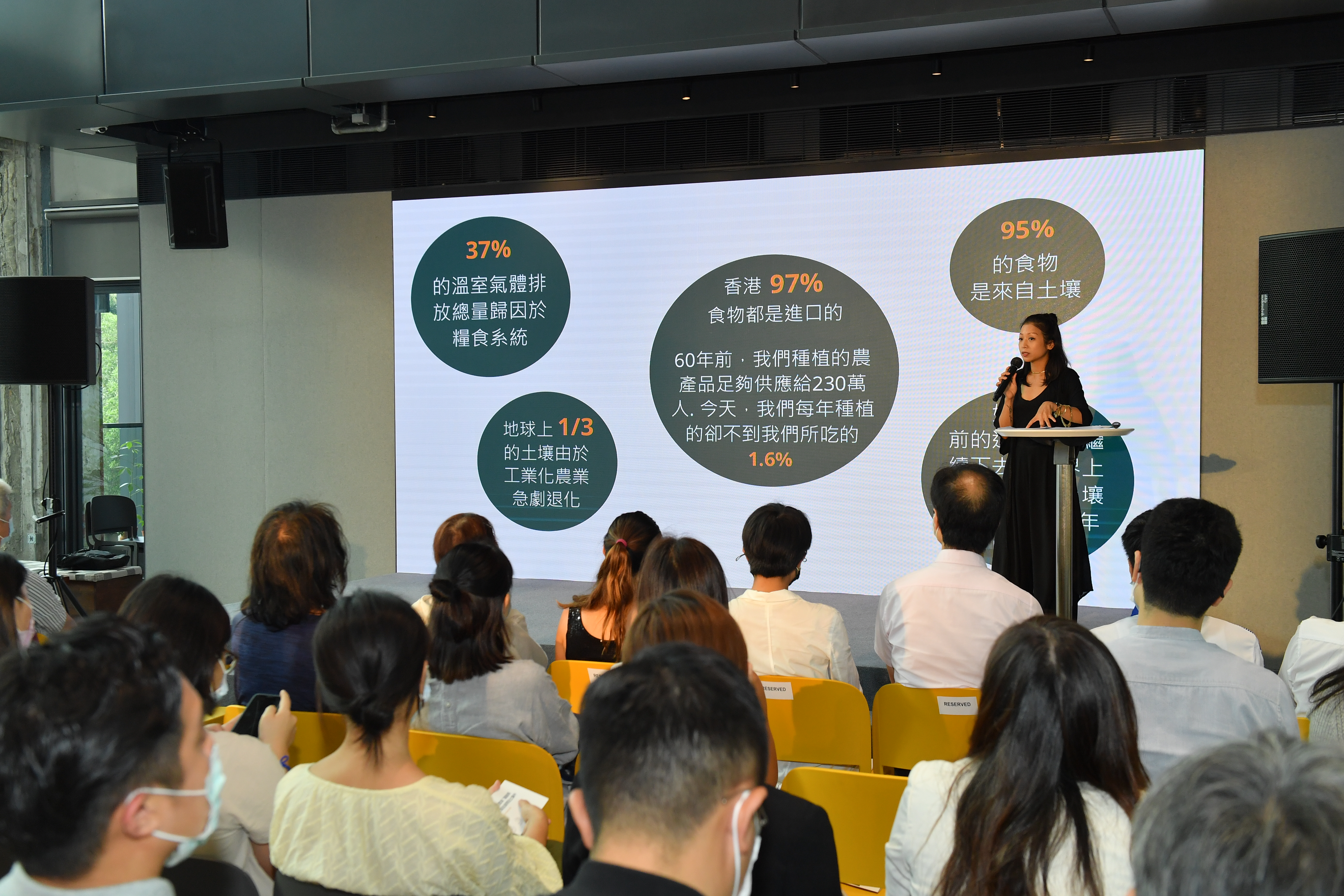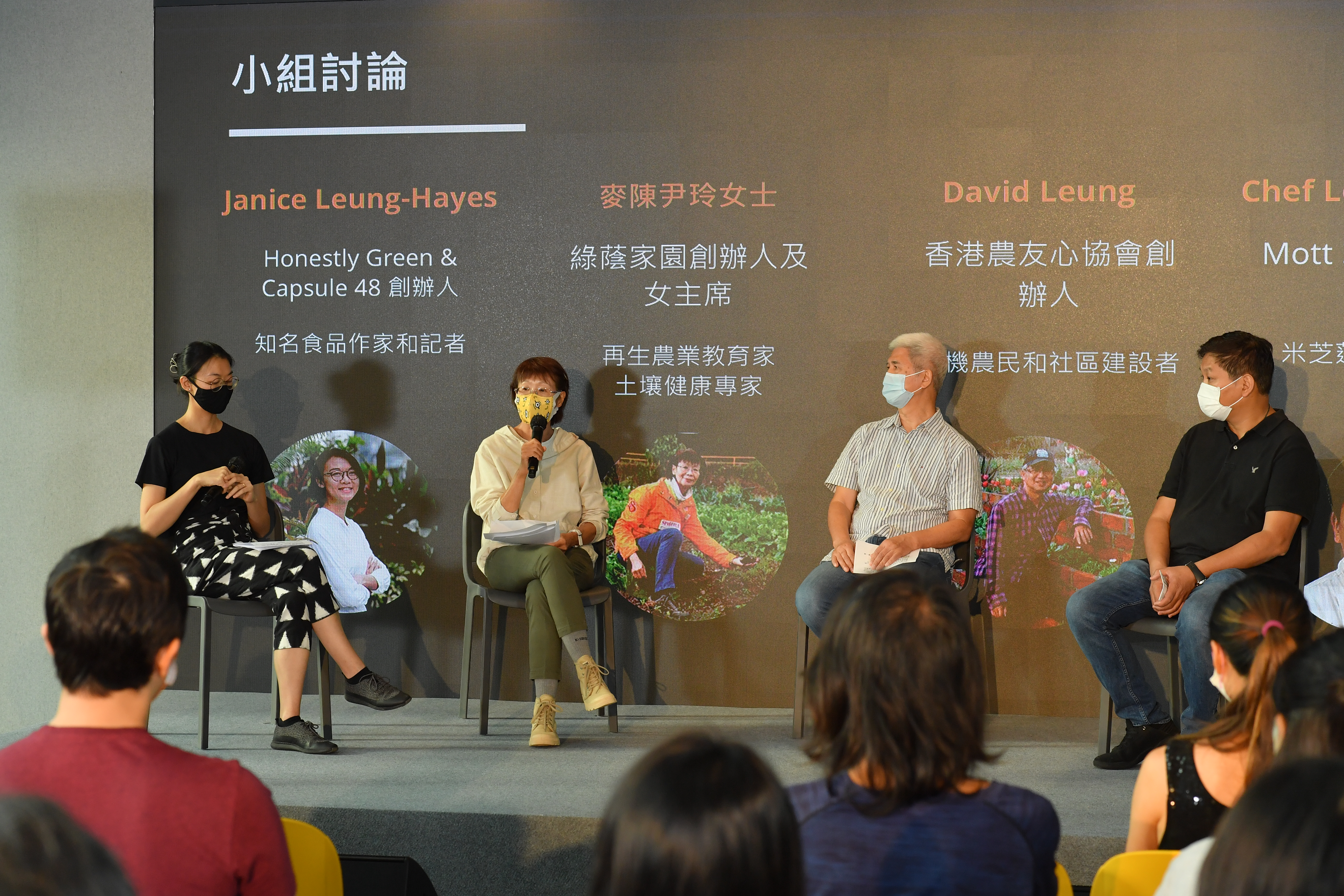Zero Foodprint Asia Launch

To celebrate the launch of Zero Foodprint Asia, The Mills Fabrica hosted a special event for press, farmer organizations and industry giants from the F&B industry on 22nd October 2021. Originally from California, USA, Zero Food Print’s expansion to Hong Kong marks their first step in supporting regenerative farming in Asia and fighting climate change.

ZFPA Executive Director Peggy Chan kicked off proceedings by sharing facts on the negative impact that the food industry has on pollution and global warming, while bringing hopes on how we, as industries, can do better. Today, over 97% of our food in Hong Kong is imported. This is a huge contrast when compared to Hong Kong in the 1960s, where 2/3 of our food was locally sourced and 95% of what we ate came from the soil. This sets the ground (no pun intended) for the introduction of ZFPA’s mission.
“Climate anxiety is a rising topic, especially amongst the up-and-coming generation.”
Peggy mentioned that recent natural disasters are brought about by climate change. This will happen more frequently if we continue with our current way of living. Given how heavily reliant Hong Kong is on imported food, our city is simply ill-equipped to face the consequences of climate change.

For the panel discussion, we were pleased to have prominent food writer and founder of Island East Markets / Capsule48 / Honestly Green, Janice Leung Hayes, as moderator. Together with Josephine Mak, soil expert from Homeland Green, David Leung, founder of HK Farmer’s Pride and Lee Man Sing, Executive Chef of Mott 32’s, we explored ways to resolve food security and sustainability issues in Hong Kong.
Josephine explained the concept of regenerative agriculture. It is referred to as an indigenous food practice that can revive soil systems, reverse climate change while encouraging food security. These benefits are further proven by her experiences working with farmers, where she helped them shift from conventional to regenerative practices.
Although regenerative agriculture is a new concept for Chef Lee and his team, he stressed the importance of learning about it for present applications rather than only focusing on the future. Having met with some local farmers at the launch, Lee is excited and further inspired to work with them on this.
Lastly, David discussed the change in our agricultural landscape – the ageing farming population is leading to a decline in the workforce. Hong Kong is at high risk of losing one of its oldest vocations and our reliance on food imports will soon reach 100%. To turn this around, David believes that our community should start taking good care of our soils, while incentivizing the young generation to enter the farming industry.
“If we don’t have healthy soils, we can’t grow healthy food.”
Today, a number of companies are attempting to fulfil challenging sustainability goals while meeting the increasing consumer demand for sustainably responsible and transparent businesses.
Sourcing locally is the key, but we cannot abide by such a practice if our local foodways have been devastated. The only way to restore the damage is through supporting farmers and educating our communities on the state of our food system, as well as encouraging them to implement the best practices to restore it. It is about time to recognize that we are privileged to be living under current lifestyles; and ultimately, it is our responsibility to initiate transformative change.
About Zero Footprint Asia
Zero Foodprint Asia (ZFPA), an extension of Zero Foodprint (ZFP) in California, is a nonprofit organization mobilizing the food world around agricultural climate solutions. ZFPA hosts a crowdfunding program that gathers funds from member food businesses such as restaurants, cafes, bars and food retailers. Members pledge 1% of every restaurant purchase to ZFPA to fund regenerative farming practices that draw down carbon from the atmosphere and help combat global warming; this is the ZFP model.